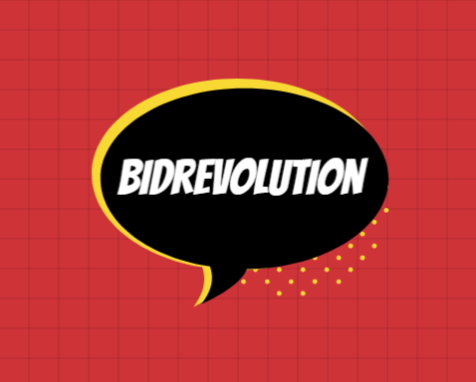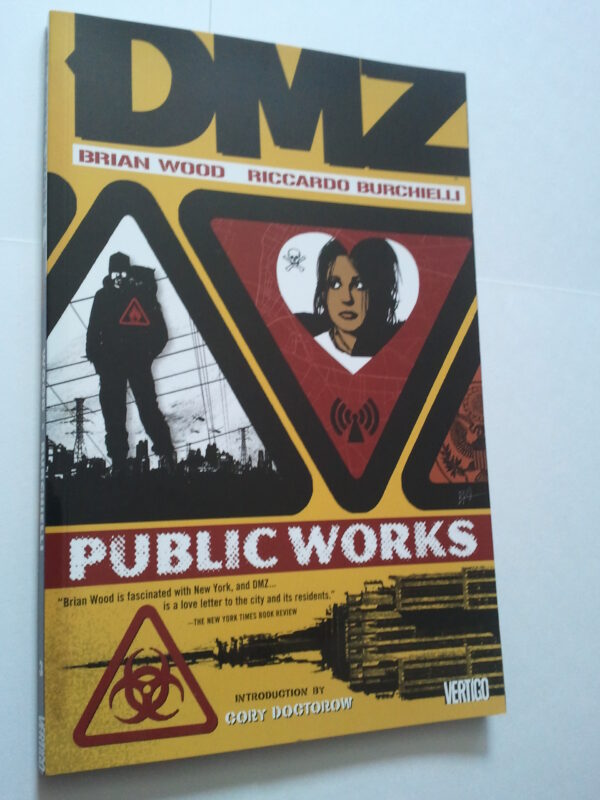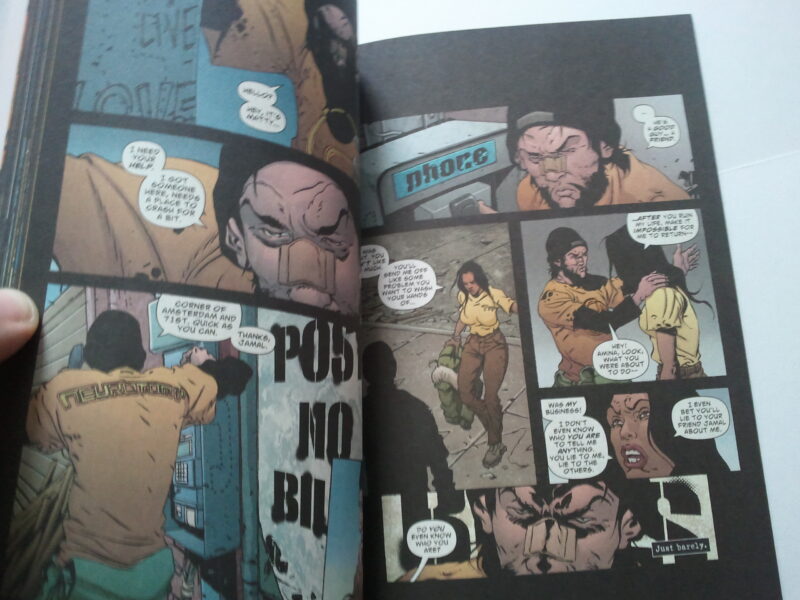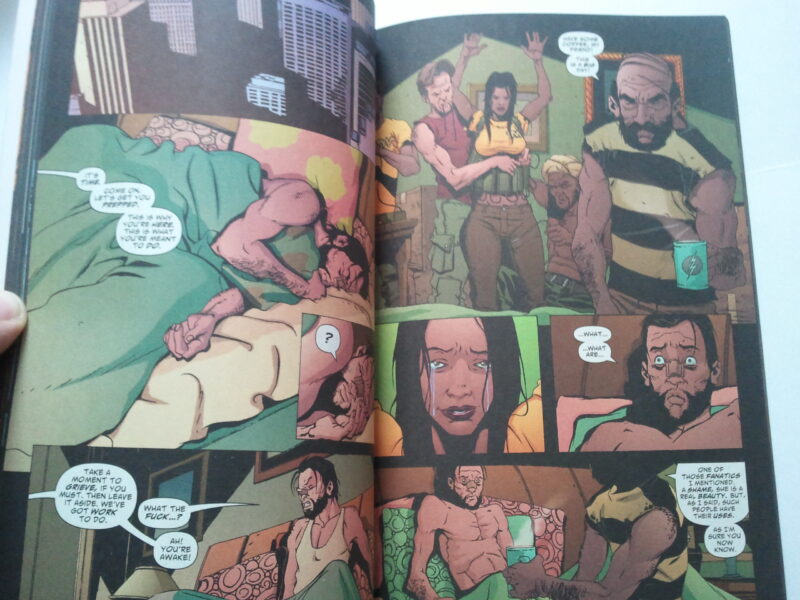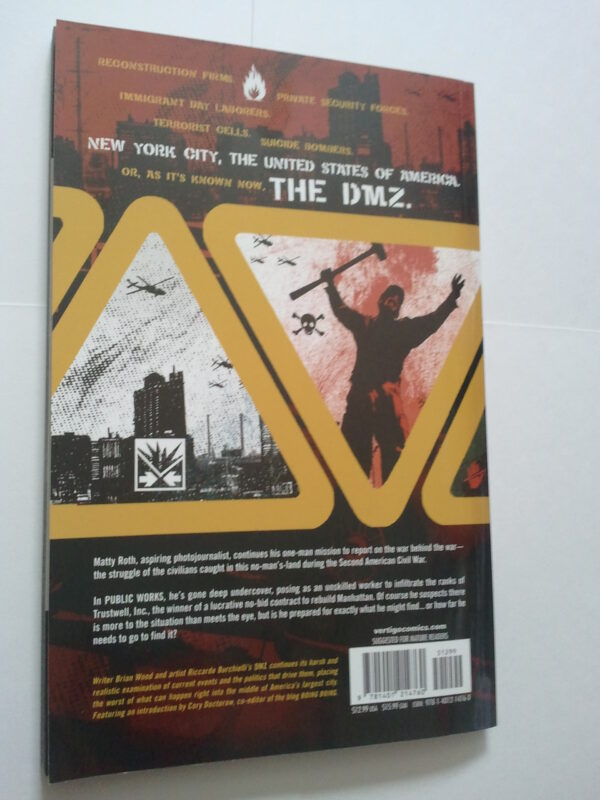DMZ Volume 3 Public Works TP Brian Wood NM 1st print Riccardo Burchielli Vertigo
$59.99
Description
DMZ 3: Public Works Trade Paperback
Brian Wood (Author), Riccardo Burchielli (Art)
Presents the adventures of aspiring photojournalist, Matty Roth, as he lands his dream job following a veteran war correspondant covering the second American civil war as they go into Manhattan, the heart of the DMZ.
“If residents of Manhattan often feel at odds with the rest of the country, the comic book series DMZ magnifies that anxiety with its radical premise.” — NY TIMES
Matty severs his ties to The Liberty News and becomes a free agent. He soon finds himself in over his head as he goes undercover and infiltrates a terrorist cell determined to disrupt any and all construction sites trying to rebuild the city.
Collects DMZ 13-17.
Publisher Vertigo
Paperback 119 pages
ISBN-13 978-1401214760
Weight 7.5 ounces
Dimensions 6.73 x 0.31 x 10.16 inches
Matty, a journalist in Manhattan, dives into a story and bites off a bit more than he can chew. He is investigating a company called Trustwell. However, the story ends up being more about the people he encounters during his investigation than about the company itself.
The shift in focus allows the story to delves into some interesting ideas, such as what would drive people to operate as terrorists in an environment like this (this is happening amidst the second American civil war). Matty’s decisions aren’t always good ones and that makes him feel more complex. Even when he tries to do good, the effects aren’t always what is intended.
The art is just as gritty and good as the first two volumes. This is taking place in a brutal situation and the art matches that perfectly.
Finally, Matty is becoming a muckraker instead of just playing the accidental journalist. I was starting to wonder when he was going to start digging instead of happening into a story.
What else can I say, great story, great art, characters are getting deeper (is there going to be some jealous lover syndrome sometime soon?). My only regret is that I read it too fast.
An Ode To NY In the Key of War: Brian Wood’s DMZ
In February of 2012, the comic book series DMZ ran its 72nd and final issue. After nearly six and a half years and twelve graphic novels, Brian Wood’s tale of war in a near future New York City rolled up its final story arc and gave us the last stories from the demilitarized zone of Manhattan. Having recently picked up the final graphic novel to put the cap on my long-time love affair with the series, I was struck by how touched I was as a reader and a New Yorker by the evolution of DMZ‘s story. As I said goodbye to what I would consider one of the best complete comic stories I had ever read, I realized something important about the Vertigo title. More than being set in New York, DMZ is the story of New York sung to the hail of gunfire and war-time helicopters. Whatever an individual’s politics, this is a comic book ode to one of the greatest cities in the world.
And this is my tribute, my goodbye, to that amazing comic.
Minor spoilers ahead.
As a New Yorker, you come across a lot of comic books that are set in New York City. DC Comics has Gotham/Metropolis as their dark and light versions of the city while half of the Marvel Universe seems to kick around the Big Apple on any given day. And why not? New York is considered one of the greatest cities in the world, and it doesn’t hurt that the headquarters of the Big Two are in New York. But sometimes in reading comic books and their expression of New York, a native New Yorker can feel like something is missing. They get the glitz right, hit some of the major locations and know what side of town to put the Empire State Building, but how many people get the feel of New York correct? How many people can express the multiculturalism, the class struggle that can change from neighborhood to neighborhood or block to block? Who can get the attitude of New Yorkers right without turning it into a stereotype of a bunch of cocky folk out to shove you into traffic if you get in their way? As a New Yorker, sometimes I read about New York, about Brooklyn or uptown Manhattan or the Bronx and I see the broad strokes but feel like the real flavor’s been missed in the rush for the glam. Art can lose its nuance when dealing with an entity as big as New York City. Thankfully, that is never the case in DMZ.
For anyone who hasn’t read DMZ, the premise goes like this. In a world not too different from our own, a movement starts in the United States that brings secessionist groups together to declare themselves as Free States. They descend on New York as part of their campaign and meet the U.S. with the isle of Manhattan trapped in between. When the dust settles, the United States troops hold Brooklyn/Queens/Long Island and the Free States Armies park themselves in New Jersey. In between is Manhattan, a demilitarized zone cut off from the rest of the US, with four hundred thousand folks still stuck in that no man’s land. That is the world of the DMZ. The story follows Matty Roth, out to help bring the story of the DMZ to the people of the world, as he goes into the cut off island and discovers that everything is way more complex than he initially believed.
Without a doubt, DMZ is a story about war. It is the heartbreak of every entrenched, senseless death in a civil conflict, the brutal argument of a government tearing itself to shreds, and the nightmare of the lives and landscapes changed by violence. Yet set underneath this vibrant political story is the setting of Manhattan, it’s neighborhoods and complicated cultural landscape, and the way it fights to evolve and survive against the hailstorm of bombs and bullets overhead. Wood crafts a world where blocks familiar to any New Yorker become battle grounds, locations and cultural centers become territory to be disputed, and familiar groups change to meet the complications of war. That world is then brought to life by the gritty, intense artwork of both Wood and Riccardo Burchielli in gruff, stark detail by rendering New York and its people in brutal, uncompromising violence and beauty. Without trivializing or glamorizing, The DMZ itself is the true main character of the comic series, evolving alongside our hero Matty in a way very few settings in a story can. By the time the comic book wraps with its heart-breaking “Epilogue,”, a reader feels as though you have watched The City That Never Sleeps beaten, blown to shreds and transformed, but never broken.
Wood is cited as pointing at the post 9-11 atmosphere of New York and the wars that followed as an inspiration for the atmosphere of DMZ. Yet reading the wrap-up issues of DMZ in a New York full of the Occupy movement and reports of political disagreement the world over, the New York of DMZ feels like a world frighteningly understandable and close to our own. That intimacy reaches inside the reader and makes you consider many things about the security of your world, especially if you live in New York. It invokes the bleakness of a city ravaged by political strife yet captures the fragile hope that lives at the beating heart of the real New York. DMZ doesn’t bring you the glitz of Time Square or the gloss of a super-hero filled Midtown. This is the Manhattan of real pavement pounding New Yorkers, struggling to survive in circumstances largely outside their power. And if that doesn’t capture the New York experience, I don’t know what does.
In seeing the end of DMZ, I can honestly say I’m not sad to see the end. Wood’s story lines wrap up with such a grace that it puts most other endings to shame. This isn’t the vagueness of a Lost ending that leaves a strange taste in your mouth. This is the ending that puts you right where you began, right in the heart of New York, and you close the final issue feeling that you’ve come a long way and seen a hell of a lot. You walk away with the stories of a New York that feels real and vibrant and gritty and vulnerable, and so you know you’ve read a real New York tale. And that is the art of DMZ.
I heartily suggest it for any and all, though I will admit that due to the violent content, it isn’t for the faint of heart. Still, isn’t that what they say about New York?
DMZ is an American dystopian streaming television miniseries created by Roberto Patino, based on the comic book series of the same name by Brian Wood and Riccardo Burchielli, that premiered on HBO Max on March 17, 2022.
Alma Ortega (Rosario Dawson), an NYC medic, becomes a symbol of hope in a demilitarized Manhattan Island while trying to find her son, who wandered off instead of sticking with her during their evacuation from Manhattan during the Second American Civil War.
On January 22, 2020, Rosario Dawson was cast as Alma. On February 6, 2020, Benjamin Bratt was cast as Parco Delgado. On February 18, 2020, Freddy Miyares was cast as Skel. Upon the limited series order announcement, Hoon Lee and Jordan Preston Carter joined the main cast. On July 12, 2021, Rutina Wesley, Mamie Gummer, Nora Dunn, and Henry G. Sanders were cast in undisclosed capacities while Venus Ariel, Jade Wu, Rey Gallegos, Agam Darshi, and Juani Feliz were cast as series regulars.
Rosario Dawson on Why HBO Max’s ‘DMZ’ Won’t Have A Season Two
DMZ was originally intended to be a longform series on HBO Max but in the end it was reduced to just four episodes because of the pandemic, Rosario Dawson told Newsweek.
The show, which was released on Thursday, March 17, was one of the last sets to shut down filming in March 2020, and the pilot was made with the intention of there being a second season, until plans changed.
DMZ follows Alma Ortega (Dawson) who travels into the eponymous zone based between the U.S.A and the Free States of America (the F.S.A) , where she goes in search of her son Christian, who went missing eight years before during an evacuation of the city.
Rosario Dawson on Why HBO Max’s ‘DMZ’ Season 2 Won’t Happen
“The idea when we originally started this was for it to be a multi-year several episode series, and because it’s so expensive and because of the time [with the COVID-19 pandemic unfolding] the entire filming industry shut down… thank God it wasn’t shelved, instead it was picked for a four-episode miniseries,” Dawson told Newsweek.
“It was wonderful though because we ended up having a singular voice guiding us through it which is so powerful, and, you know, we condensed it and I think that’s one of the reasons why these four episodes are so intense is because it’s like a really good four-act movie, there’s no filler, there’s nothing.”
Speaking about what the director had planned for DMZ, Dawson added: “Interestingly enough when we first did this with Ava [DuVernay, who directed the pilot] we had 900 extras a day for the evacuation scene, which when you add crew it was 1000 people, like I can’t even imagine when I’ll ever be on a set that has that many people again.
“Let alone just the pandemic side of it but even just TV studios going ‘yeah, we can just make that up later and avoid the cost and the logistics of it’ because it’s intense, you know.
“It’s a really expensive show, and we shot it in March 2020 and we were one of the last productions to shutdown worldwide, and then we had a year and a half before we picked up production again.
The actress went on to explain that the show was shortened to be a limited series, however there was a possibility of there being more if there was fan interest in it.
The DMZ comics focus on a journalist named Matthew “Matty” Roth who, amongst others, meet’s Dawson’s character while investigating life in the DMZ, though now she is a leader named “Zee”, an alter-ego Dawson’s Alma adopts during the show.
“It was intended as the comics progressed, it was intended to be a much more longer form show,” Dawson shared of her character’s journey, and how the way the show ended could lead onto another season.
“Ultimately I think that depends on everything from the audience reaction and demand and, you know, schedules!
“I know that everyone when they first joined were hoping it’d be something longer to kind of deep dive into. It’s a possibility, you know.
“I think it was vastly important that we got to make these four episodes, I am grateful we got to do that because it is very special, it has a lot to say even in just these four episodes.”
Rosario Dawson on How the Show Compares to The ‘DMZ’ Comics
Dawson also spoke on how reading the DMZ comics made her think of her own childhood, saying: “I went through the comic, my friend Ashley was actually going to send me a picture, I was reading it with my dad while he was getting cancer treatment.
“It was really great to share it with him because I grew up in the Lower East Side in an abandoned building, in a neighbourhood and community that was not so different, honestly, from the neighbourhood depicted in the comics, and ultimately in the show.
“And it was really powerful to see that kind of storytelling, and I really love that perspective, something that really driven by the character of Alma, which is literally the character in the comics.
“This idea of like, not just focusing so much on the dystopian war aspect of [the comics], but really the internal space as a community is trying to find its way forward in the midst of war, and are they going to make the exact same mistakes that are literally being bombed all around them?
“Or are they going to be able to do something different? I love my character in particular, because she’s the one who’s the catalyst for change.”
Rosario Dawson on What the Show Says About Parenthood
DMZ also explores the notion of parenthood and what it means for Alma, who learns her son Christian (Freddy Miyares) is no longer the boy she knew and has become a violent hitman for his father Parco Delgado (Benjamin Bratt).
Sharing what she felt DMZ said about parenthood, Dawson added: “It’s intense, it’s people raising people, it’s fallible, flawed people, raising people in the midst of trying circumstances, and you know, divisions worldwide.
“In trying to, you know, bring who you are to it, and an understanding that, eventually, that child is going to talk back and tell you what they actually needed. You can go into any room and say, ‘did your parents mess you up because they overwhelmed you or because they neglected you?’
“And, you know, it’s trying and challenging, and also a remarkable experience and relationship. It’s one of most remarkable and special things you can experience, and I’m saying that as a mom myself now.
“It’s tough, and as you get older you start to recognize the choices you begrudged certain family members [for] because that’s all they knew how to do.
“It’s about connected and finding that empathy with each other… if there’s anything DMZ speaks to it’s that so much could be avoided if people really talked to each other and saw each other”.
978-1401214760
Near mint, 1st print. Collects DMZ 13-17. More pictures in description.
Related products
-
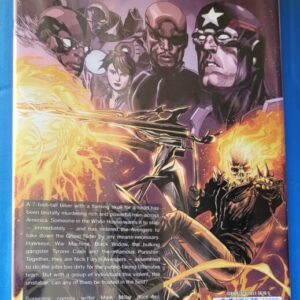
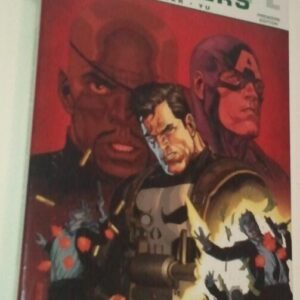
Ultimate Comics Avengers: Crime & Punishment HC NM Shrinkwrapped 1st print Millar Yu Punisher
$99.99 Add to cart -
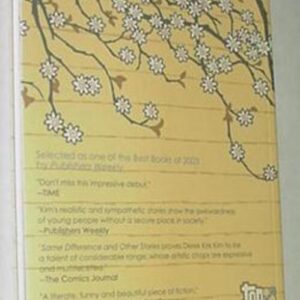

Same Difference & Other Stories TP Derek Kirk Kim 1st print Top Shelf Autobio NM
$59.99 Add to cart -
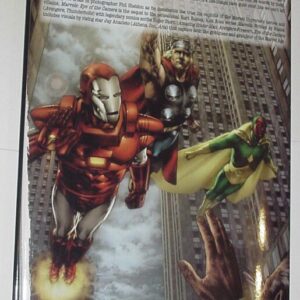
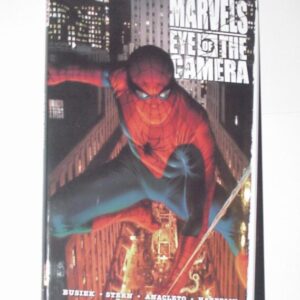
Marvels Eye of the Camera HC Kurt Busiek Jay Anacleto 1st print
$59.99 Add to cart -

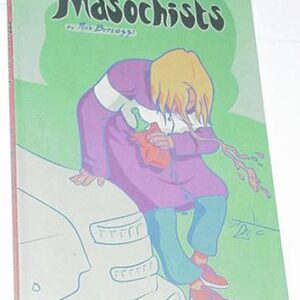
The Masochists TP NM 1st pr Nick Bertozzi Alternative Comics
$69.99 Add to cart
